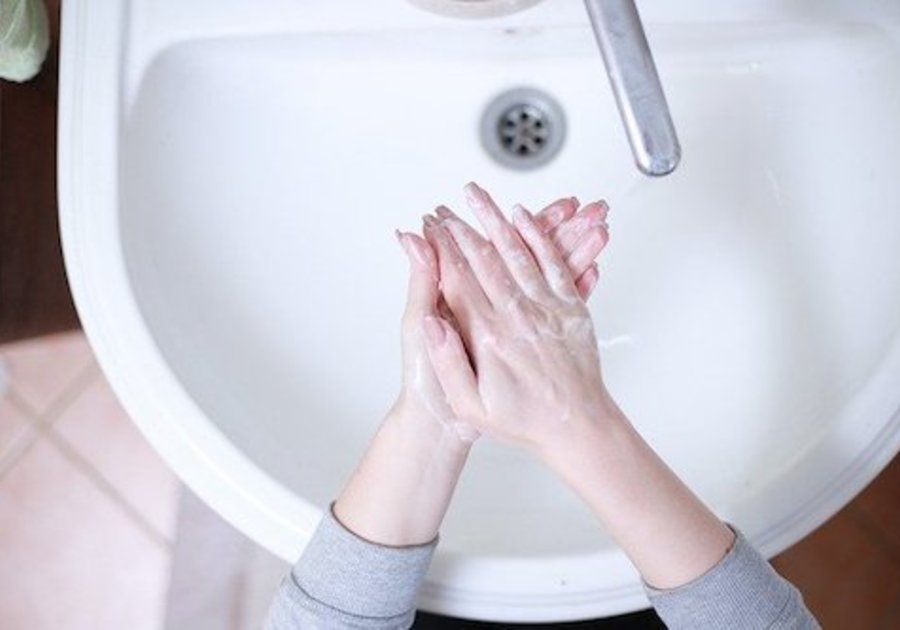With news of the coronavirus spreading quickly around the world, we wanted to take a moment to share information about the virus. If you're like us, there's so much information out there it can be hard to know what to trust or believe. So we've tried to compile easy-to-understand answers to eight questions we hear you asking. We gathered this information in early March from the Centers for Disease Control and Prevention
What is coronavirus?
Coronavirus is a family of viruses that cause respiratory infections. These include illnesses like SARS and MERS, but also four different strains of the common cold. The difference with this new virus (named COVID-19) is just that... it's new, and there is currently no known remedy.
As of publication, the CDC estimates that 80 percent of the people who contract COVID-19 will experience cold- or flu-like symptoms and recover easily.
That said, there are members of the general population who can die from COVID-19. Especially susceptible to severe effects from the illness are the elderly and those with underlying health conditions. That means, to help prevent or slow the spread, we all should take commonsense precautions to protect ourselves from COVID-19.
New Jersey Governor Phil Murphy announced a state of emergency on March 9, 2020 to "ramp up New Jersey's efforts to contain the spread of the COVID-19". As of March 10, only 1 person from New Jersey has died from COVID-19. There are currently 23 presumptive positive cases to date in New Jersey, 8 of which were announced on March 12.
How does it spread?
COVID-19 spreads person-to-person. This includes close contact, coughs, sneezes, and touching the same surfaces.
What are the symptoms?
It can take 2 to 14 days after exposure for symptoms to appear. Common symptoms include fever, cough, and shortness of breath and can range from mild to severe.
How can I protect myself and my family?
The same way you protect yourself and your family from any other illness.
- Wash hands with soap and water, often.
- Avoid touching your face (eyes, nose, mouth).
- Stay away from people who are sick.
- If you are sick, stay home. You'll help protect others who have compromised immune systems.
- Cover your coughs and sneezes -- but use your elbow.
- Disinfect surfaces that are touched frequently (think counters, phones, light switches, doorknobs, and handles).
Should I get face masks for my family?
Is it NOT recommended to wear a face mask to protect against COVID-19. These are needed for the medical community and those who are showing symptoms. Also, many types of face masks can offer a false sense of security against contracting the illness.
Who is the most vulnerable?
So far, elderly people and those with underlying health conditions seem to be the most susceptible to severe cases.
But it is possible for anyone to contract COVID-19. The good news is that it seems children are less likely to have a severe case of coronavirus. This does not mean children are immune and they could potentially still spread it to others if infected.
How much should I worry?
The CDC reported in early March that, while it's an ever-changing situation, most people in the United States "have little immediate risk of exposure to the virus that causes COVID-19." It is important to understand that no group of people are more or less likely to get coronavirus -- ethnicity, gender, and age are not factors.
Is there anything else I can do to prepare if COVID-19 spreads to my community?
The New Jersey Department of Health and the NorthWest Bergen Regional Health Commission recommend the following in case of community transmission:
- Talk to your employer about telecommuting opportunities.
- Plan for extended school and day care closures.
- Stock up on a two-week supply of water and food.
- Stock up on household supplies such as toilet paper, hand soap, paper towels, garbage bags, cleaning supplies, pet food and supplies, and baby care items.
- Ensure you have a continuous supply of prescription drugs in your home.
- Have non-prescription drugs and other health supplies on hand including pain relievers/fever reducing medications, stomach remedies, cough and cold medicines, fluids with electrolytes, vitamins, and tissues.
- Get copies and maintain electronic versions of health records from doctors, hospitals, pharmacies, and other sources and store them for personal reference.
- Plan for a sick room in the home, ideally a bedroom with its own bathroom that no one else will use.
Most importantly, reassure your children in a calm voice that health and school officials are doing their best to keep everyone healthy. For a kid-friendly podcast on tips to stay germ-free and to make homemade hand sanitizer, click HERE. You can also read helpful suggestions on how to talk to your children about COVID-19 from the National Association of School Nurses and National Association of School Psychologists HERE.
For the most up-to-date information on COVID-19 visit www.cdc.gov or New Jersey's Department of Health website, and inquire at your child's school about emergency operation plans in place in case of outbreaks.
This article originally appeared in Macaroni Kid Family Wellness.
WANT MORE FAMILY FUN?
Be sure you are receiving our FREE emails for weekly event listings and also check out our events calendar!
 |
Proudly serving Northeast Bergen County area families in Closter, Harrington Park, Northvale, Norwood, Old Tappan, Emerson, Hillsdale, Montvale, Park Ridge, River Vale, Westwood, and Woodcliff Lake since 2010.



